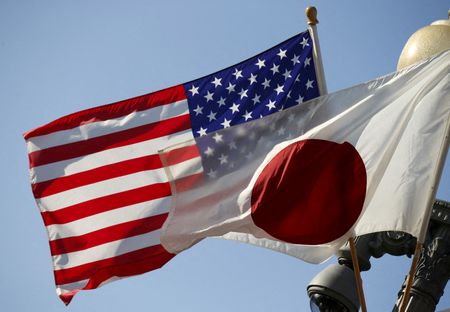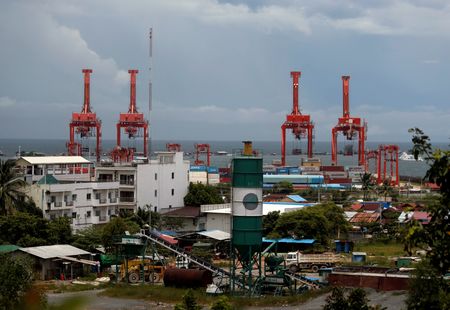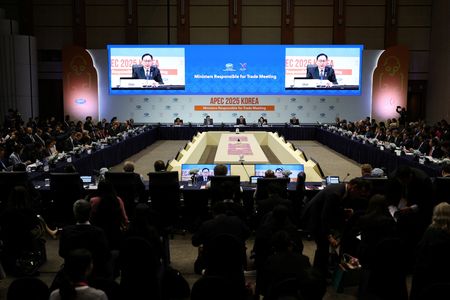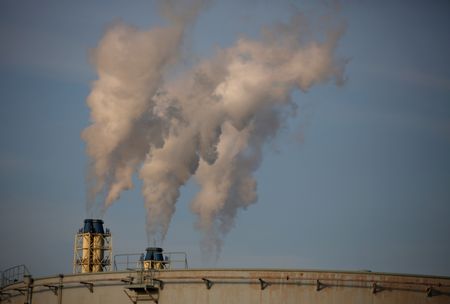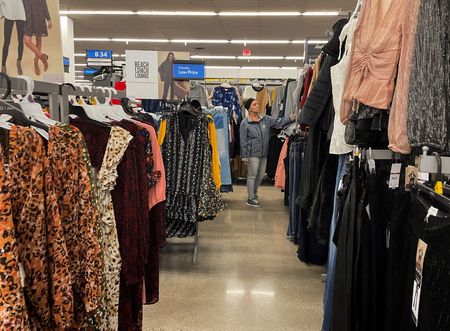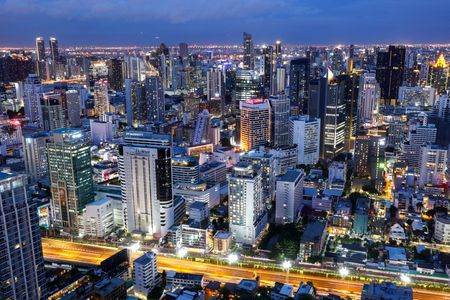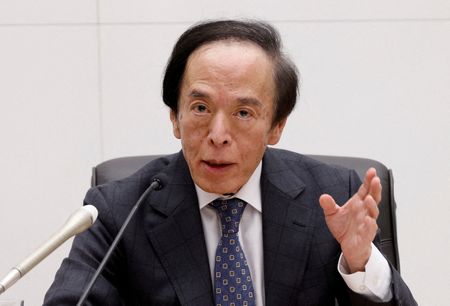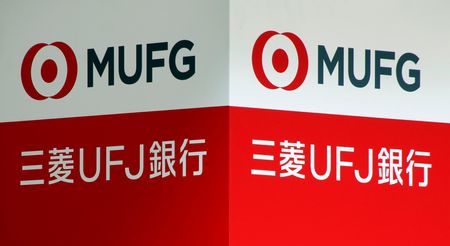By Yoshifumi Takemoto and Leika Kihara
TOKYO (Reuters) -Japan’s top trade negotiator, Ryosei Akazawa, could travel to Washington as soon as next week for a third round of trade talks with the U.S., two sources with knowledge of the plans told Reuters on Thursday.
The date of his visit was fluid and would depend on how much progress the two countries can make in narrowing differences in staff-level negotiations, one of the sources said on condition of anonymity as he was not authorised to speak publicly.
Finance Minister Katsunobu Kato is also scheduled to visit Canada next week for a meeting with his G7 counterparts, where he may discuss foreign exchange with U.S. Treasury Secretary Scott Bessent.
Japan is considering a package of proposals to gain U.S. concessions that may include increased imports of U.S. corn and soy, technical cooperation in shipbuilding, and revision to inspection standards for imported automobiles, the source said.
There is uncertainty on whether the two sides can iron out differences over Japan’s priority, which is to win exemptions from U.S. tariffs on automobile and auto parts – the mainstay of its export-heavy economy.
“We will seek reviews of the range of U.S. tariff measures, such as those on automobiles, auto parts, steel, aluminium as well as the reciprocal tariffs, that are deeply regrettable,” Akazawa, who is also economic revitalisation minister, told a news conference on Wednesday.
On April 2, U.S. President Donald Trump imposed 10% tariffs on all countries except Canada, Mexico and China, along with higher tariff rates for many big trading partners, including Japan, which faces a 24% tariff rate starting in July unless it can negotiate a deal with the U.S.
Japanese policymakers and ruling party lawmakers have said they see no merit in striking a deal with the U.S. unless a 25% tariff on automobile imports is lifted, given the industry’s economic importance.
The impact is already evident in the sector. Mazda reported a 45.1% drop in net profit for the fiscal year that ended in March, and held off disclosing earnings estimates for the current year through March 2026.
During his second visit to Washington on May 1, Akazawa made a request to Bessent to review the 25% automobile and auto parts tariffs, though the two sides could not reach common ground.
Initial hope of a quick deal, such as one timed around a summit of G7 advanced economies in June, is fading. Domestic media have reported that Prime Minister Shigeru Ishiba is now aiming for an agreement by early July – ahead of an upper house election slated later in the month.
While Japan was the first major economy to start bilateral trade talks with the U.S., Britain was the first to strike a deal with the Trump administration. China also agreed on a truce with the U.S. in a de-escalation of trade tensions that led to a sharp rebound in global stock prices.
“Slapping tariffs on Japan is less painful for the U.S. than doing so on China. As such, the U.S. doesn’t have a huge incentive to compromise and seek an early agreement with Japan,” said Takahide Kiuchi, executive economist at Nomura Research Institute, predicting that bilateral talks will drag on.
Japan’s upper house election also gives Ishiba little room for compromise in politically sensitive areas like agriculture. Ruling party heavyweight Hiroshi Moriyama, who is a close aide of Ishiba, has ruled out boosting imports of U.S. rice.
(Reporting by Yoshifumi Takemoto and Leika Kihara; additional reporting by Makiko Yamazaki, Takaya Yamaguchi and Kentaro Sugiyama; Editing by Stephen Coates and Sam Holmes)

